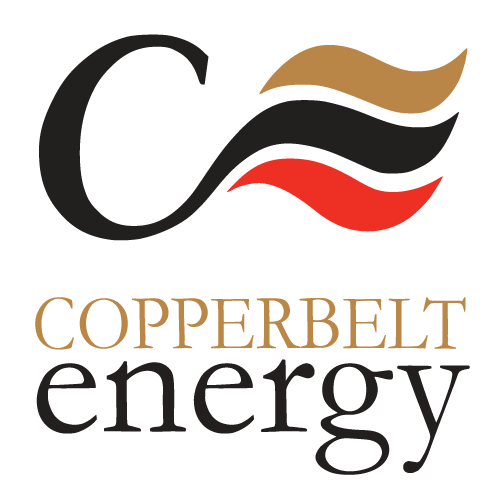Copperbelt Energy Corporation’s Managing Director, Mr Owen Silavwe, inaugurates the Company’s latest education initiative
Speech by Copperbelt Energy Corporation, Managing Director, Mr Owen Silavwe, at the signing ceremony of the Letter of Intent for the development of a solar energy curriculum and renewable energy training.
On 1 November 2017, the Copperbelt Energy Corporation Plc (CEC), Copperbelt University (CBU) and Deutsche Gesellschaft für Internationale Zusammenarbeit (GIZ) signed a Letter of Intent to cooperate on solar energy curriculum development and renewable energy development training. The solar energy curriculum is being developed for CBU’s Master of Science in Electrical Engineering course.
The ceremony took place on site at CEC’s Riverside Solar Project in Kitwe, which is Zambia’s first grid-scale solar project.
Mr. Peter Cattelaens – Head of Component, Water Resources Management – GIZ,
Prof. Naison Ngoma, Vice Chancellor, Copperbelt University,
Copperbelt Energy Corporation Plc representatives,
Members of the Media,
Ladies and Gentlemen
We are gathered here today to sign the Letter of Intent to cooperate on a solar power development project and related curriculum development. Before I get into the details of the subject for which we are here, allow me to provide some background and context.
CEC has been developing its power generating capacities, especially in sustainable energy, which includes hydro, solar and biofuels etc. Under its Renewables Unit, CEC currently produces biodiesel – a product certified by the Zambia Bureau of Standards which has been successfully tested for use in vehicles and industrial equipment. Exploiting solar power generation came as a natural next step in our quest to develop capacity and contribute, not only to increasing the country’s installed energy capacity but also very importantly, to diversifying Zambia’s energy mix; which at present is predominantly hydro, exposing the country to the vagaries of nature.
This is the background that motivated CEC to embark on what would be Zambia’s first grid-scale solar project and launch the Company’s foray into solar power generation. I am excited to share with you that construction of CEC’s first solar project, the 1MW solar power plant estimated to cost about USD1.5 million. The project has already commenced.
The project includes an important aspect of capacity in renewable energy project development and curriculum development for a solar energy course. It is for this purpose that CEC, GIZ and the Copperbelt University (CBU) have agreed to cooperate.
Allow me to step back and speak about CEC’s involvement with education, particularly tertiary
education, in Zambia. In 2016, the Company commissioned a mini-power system at the University of Zambia (UNZA) fully designed, constructed and financed by CEC. The purpose of that power system is for it to serve as an effective tool for imparting practical technical skills to our engineering students, mimicking the systems and environment that our graduates will interact with once they are in industry.
Just a few weeks ago, CEC enabled a group of UNZA engineering students to build a prototype car whose overriding purpose was efficiency, particularly fuel efficiency. The Company’s support resulted into UNZA and Zambia, for the first time, participating in the Shell Eco-Marathon – a competition that pits students from around the world to compete for various accomplishments including which car would go farthest on the least amount of fuel.
You may also wish to note that CEC is a member of the Education Partnerships for Africa, a cooperation of industry and academia, and we believe that the quality of learning being given in and obtained from our institutions of learning largely determines the quality of talent and skill available to industry and the country at large. It motivates us to invest in better training because being a technical and engineering business at the core, we will tap from the same pool of human capital being developed at these institutions. We, therefore, have an interest to invest in the training and development of curriculum offered at these institutions.
I should also mention that earlier this year, CEC participated in developing the curriculum for the TEVET Diploma in Hydropower Technology and Management; Zambia’s first dedicated professional hydropower development programme which includes CEC System Regulations and is offered by the Kafue Gorge Regional Training Centre, meaning that the course will be taught to students from outside Zambia too. You will note therefore that, the CBU program is not the first time that CEC is availing itself to supporting the development of course material and lending resources and knowledge to improving the quality of training in our institutions of higher learning.
The few highlights while not being exhaustive, evidence the extent of CEC’s seriousness in and commitment to our goal of supporting education. I, therefore, implore CBU to rise to the occasion and take advantage of what is being availed to the benefit of growing the body of knowledge and enhancing the reputation of the institution especially that, as I understand it, this will be the first ever solar energy course to have been developed and implemented in the country.
The Letter of Intent to be signed shortly envisages the development of a solar PV (photovoltaic) course curriculum for the Master of Science programme in Electrical Engineering with the CBU’s School of Engineering with the support of GIZ. The objectives of the cooperation include developing capacities in solar technology.
As I conclude, I wish to point out that it’s important that academia moves in tandem with developments in industry. Consequently it is becoming increasingly important to establish close linkages between academia and industry.
This cooperation is a great opportunity for us as CEC to contribute to the advancement of the solar industry in Zambia. We are grateful to be cooperating with both GIZ and CBU and we believe the conditions are right for all of us to work together effectively to ensure this undertaking is a big success. We look forward to a very successful cooperation.
I thank you.

